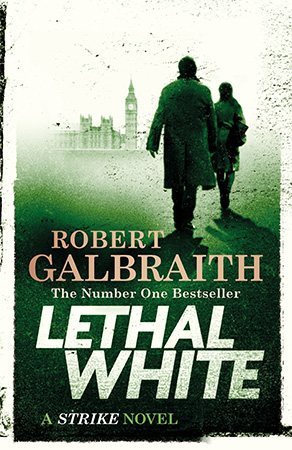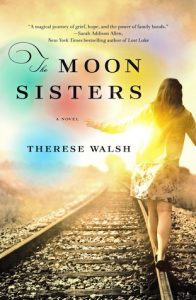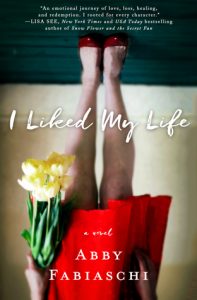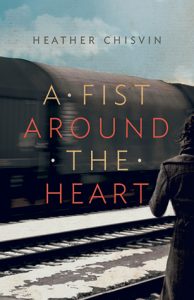Questions Live On
A lithe, unassuming young girl walks down her street. She sees a dirty old man who grabs at her skirt. Bastard! They never grow out of it. She sees a man giving flowers to a woman on her doorstep. Sweet, but sure it’s only surface sugar. She sees a starving artist painting picnickers in the park. He doesn’t know from angst. She sees a boy smacking his dog for disobeying. He won’t grow out of that either. She sees a military-uniformed man on a park bench, much-loved letters scrunched in his hand, staring into space. She feels no sympathy.
They are all her father. His art, his military service, not even his love for her mother, compensates for making her feel dirty, and forcing her to live in the dark end of the tunnel, at 14. Her mother was lost to her, just a woman at the other end of that tunnel who regulated her day. Feeding and clothing must equal love, or is it merely obligation? Would love allow pain to continue, and knowledge of it to slip into fog? A drowning man can’t save a drowning man. A woman in pain cannot save a girl in pain.
Look to God then. Such a small prayer over and over for lightning to strike him down. God brought him back from war. War! So much more convenient than lightning. Keep your God! My mother will not become a person, for God’s sake.
The quiet young man of 15 writes poetry for her; she refuses flowers. She wonders if he lies. He says everyone does. He lies? She wonders if he ever could be guilty of her father’s sin. This question remains unasked. He touches her face. She flinches. He cries at night for her.
He writes:
Blue skies
Blue eyes
So big they take you in
The Blond flows long
Forget the pain
Sadness dies
For you so sweet
Dreams are real
Dreams are true
Everyone lies
Not you
For you believe
That Truth one day
Will make people
Bigger than they are
Ideals die hard
Love remains
Despite experience.
Her diary reads:
Cliché — understanding or manipulation? If I did not believe that one day my life will be elsewhere, courage would fail me to continue life. Yet, I’m allergic to pain — hah!
Even the screaming, the touching, and the nonsense cannot belie the fact that I was meant for greater things. If hardship builds character, then I am indeed of great character. I just hope it’s not a cartoon character, and God is not a comedian.
Tuesday, she meets a Jewish man, who explains to her that Jesus was just a man, a great prophet, maybe, but a simple mortal nonetheless. She meditates on this for two days before belief settles in. Thursday, she meets a philosopher, who expounds upon Plato’s shades of gray. Nothing is real. It is all perception. In one afternoon, conviction of Plato’s theory solidifies in her mind. Friday, she meets an old woman who outlines men’s evils. Her father’s sin makes the list. Such a sweet young thing should not have to live in a world of such men. The old woman’s revelation brings her no comfort.
Her father comes to her Saturday. Sunday, to spite God, she steps in front of a bus. Her parents weep, but the young man grieves dry-eyed, knowing the Truth.

 Their mother’s death sends Jazz and Olivia Moon on figurative and literal journeys of grief. Olivia, a synesthete with multiple sensory connections, sets off to see the ghost lights of the bog, an elusive dream of her mother’s for finishing her fantasy novel. Jazz grew up with a different mother, a colder mother, with misplaced expectations of being her sister’s keeper, this heightened sense of responsibility forcing her to “escort” Olivia on her quest. Secrets are exposed that rile and enlighten, urging them to look closer at each other, and determine what family means.
Their mother’s death sends Jazz and Olivia Moon on figurative and literal journeys of grief. Olivia, a synesthete with multiple sensory connections, sets off to see the ghost lights of the bog, an elusive dream of her mother’s for finishing her fantasy novel. Jazz grew up with a different mother, a colder mother, with misplaced expectations of being her sister’s keeper, this heightened sense of responsibility forcing her to “escort” Olivia on her quest. Secrets are exposed that rile and enlighten, urging them to look closer at each other, and determine what family means. Eve’s mom, Brady’s wife, killed herself, imbuing them both with an onslaught of guilt, but also forcing them to examine and restructure their relationship. Fabiaschi drizzles clues to a twist that leaves the reader sitting back watching these beloved characters come to terms with the information. She lays out the complexities of familial dynamics and how suicide exposes cracks in the foundation of relationships. The chaos and isolation of innocence lost is portrayed well for teenage Eve. The best part of this book is the point of view told by Madeline, or Maddy to her friends and family, the mom who died before the opening chapter narrated by her. I love how real the emotions of the characters feel and how the perspectives of each play off the others. All three members of this family keep returning from their various emotions and misunderstandings to the love they have for each other, and it all reads true.
Eve’s mom, Brady’s wife, killed herself, imbuing them both with an onslaught of guilt, but also forcing them to examine and restructure their relationship. Fabiaschi drizzles clues to a twist that leaves the reader sitting back watching these beloved characters come to terms with the information. She lays out the complexities of familial dynamics and how suicide exposes cracks in the foundation of relationships. The chaos and isolation of innocence lost is portrayed well for teenage Eve. The best part of this book is the point of view told by Madeline, or Maddy to her friends and family, the mom who died before the opening chapter narrated by her. I love how real the emotions of the characters feel and how the perspectives of each play off the others. All three members of this family keep returning from their various emotions and misunderstandings to the love they have for each other, and it all reads true. Anna “Bencke” Grieve’s life changed after Tsar Alexander II’s assassination. In fear for their lives as Jews, her mother, a privileged servant, asked her employers Count and Countess Chernovski to take Bencke and her older sister Esther with them to Canada. The Chernovski’s later adopt them, believing their parents to be dead. Bencke does her best to care for Esther, who suffers episodes from traumatic memories that incapacitate her at times, as she herself tries to fit her eccentric personality into Countess Chernovski’s picture perfect household. Decades later, Anna receives a phone call from the Winnipeg police informing her that her sister has committed suicide by stepping in front of a train. She heads to Canada seeking the truth. The story alternates between this investigation and a backstory of a life fully lived, from Anna’s forced relocation to NYC, to circumstances causing her to be deported to Russia during WWI. In the investigation, Anna learns her sister’s secrets and must live with them now.
Anna “Bencke” Grieve’s life changed after Tsar Alexander II’s assassination. In fear for their lives as Jews, her mother, a privileged servant, asked her employers Count and Countess Chernovski to take Bencke and her older sister Esther with them to Canada. The Chernovski’s later adopt them, believing their parents to be dead. Bencke does her best to care for Esther, who suffers episodes from traumatic memories that incapacitate her at times, as she herself tries to fit her eccentric personality into Countess Chernovski’s picture perfect household. Decades later, Anna receives a phone call from the Winnipeg police informing her that her sister has committed suicide by stepping in front of a train. She heads to Canada seeking the truth. The story alternates between this investigation and a backstory of a life fully lived, from Anna’s forced relocation to NYC, to circumstances causing her to be deported to Russia during WWI. In the investigation, Anna learns her sister’s secrets and must live with them now.